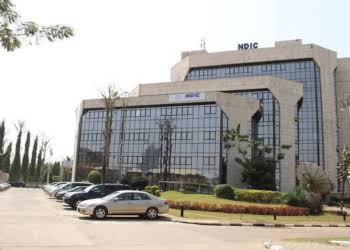The Nigeria Deposit Insurance Corporation (NDIC) has shifted to using the Nigeria Inter-Bank Settlement System (NIBSS) to pay insured depositors of the defunct Heritage Bank. This move comes as a result of challenges encountered with the Remita payment platform, which the NDIC had been using since 2013.

During a recent workshop for business editors and members of the Finance Correspondents Association of Nigeria (FICAN) in Lagos, Pamela Roberts, NDIC’s Deputy Director at the Enugu Zonal Office, explained the decision. She said that while Remita had served its purpose over the years, it struggled with large-scale payments and had issues with verifying account details during the payout process.
“The Corporation had used Remita to effect payments from 2013, but there were limitations in terms of uploading payments, account name validity, and other issues,” Roberts explained. “When paying depositors of Heritage Bank, the NDIC opted for the NIBSS platform to handle a larger volume of payments more efficiently.”
One of the major drawbacks of Remita was its verification process. If a mismatch occurred between an account name and the corresponding details in a payment batch, the entire batch would be rejected. This led to delays and required manual intervention, slowing down the payout process.
The NDIC switched to NIBSS, a platform capable of handling larger numbers of payments at once, to ensure a smoother process for the affected depositors of Heritage Bank.
Despite the improved efficiency with NIBSS, Roberts noted that there were still challenges with the Bank Verification Number (BVN) system. Not all depositors of Heritage Bank were captured in NIBSS’s data. This meant that not all payments could be processed automatically, and manual verifications were needed for some accounts.
Roberts explained, “It was observed that many depositors had accounts solely with the failed Heritage Bank and were not linked to a BVN, which limited automatic payments.”
As a result, a large number of depositors had to visit NDIC’s head office and zonal offices for physical verification to provide their alternate account information, leading to significant turnout and some delays.
In addition to the technical challenges, some payments were delayed due to legal issues. Accounts with a Post-No-Debit (PND) status, which is often applied due to court rulings or liens, could not be processed automatically. These delays required additional legal clarifications before funds could be disbursed.
Despite these hurdles, the NDIC has made significant progress in paying depositors of Heritage Bank. According to NDIC’s Managing Director, Bello Hassan, the corporation has successfully paid out 84.98% of insured depositors whose accounts were linked to their BVN.
The NDIC, acting as the liquidator of the failed bank, managed to begin these payments within just four days of the bank’s closure. The use of BVN as a unique identifier allowed depositors to receive their payments without needing to fill out forms or visit NDIC offices.
Hassan explained, “This innovative approach has enabled the payment of 84.98% of depositors with BVN-linked accounts to date.” He also emphasized that the NDIC is committed to reimbursing depositors with balances exceeding the N5 million insurance limit, once Heritage Bank’s physical assets are realized.
The NDIC is also working to recover the bank’s debts and assets to ensure that uninsured depositors and other creditors are paid in full once all depositor claims are settled.




